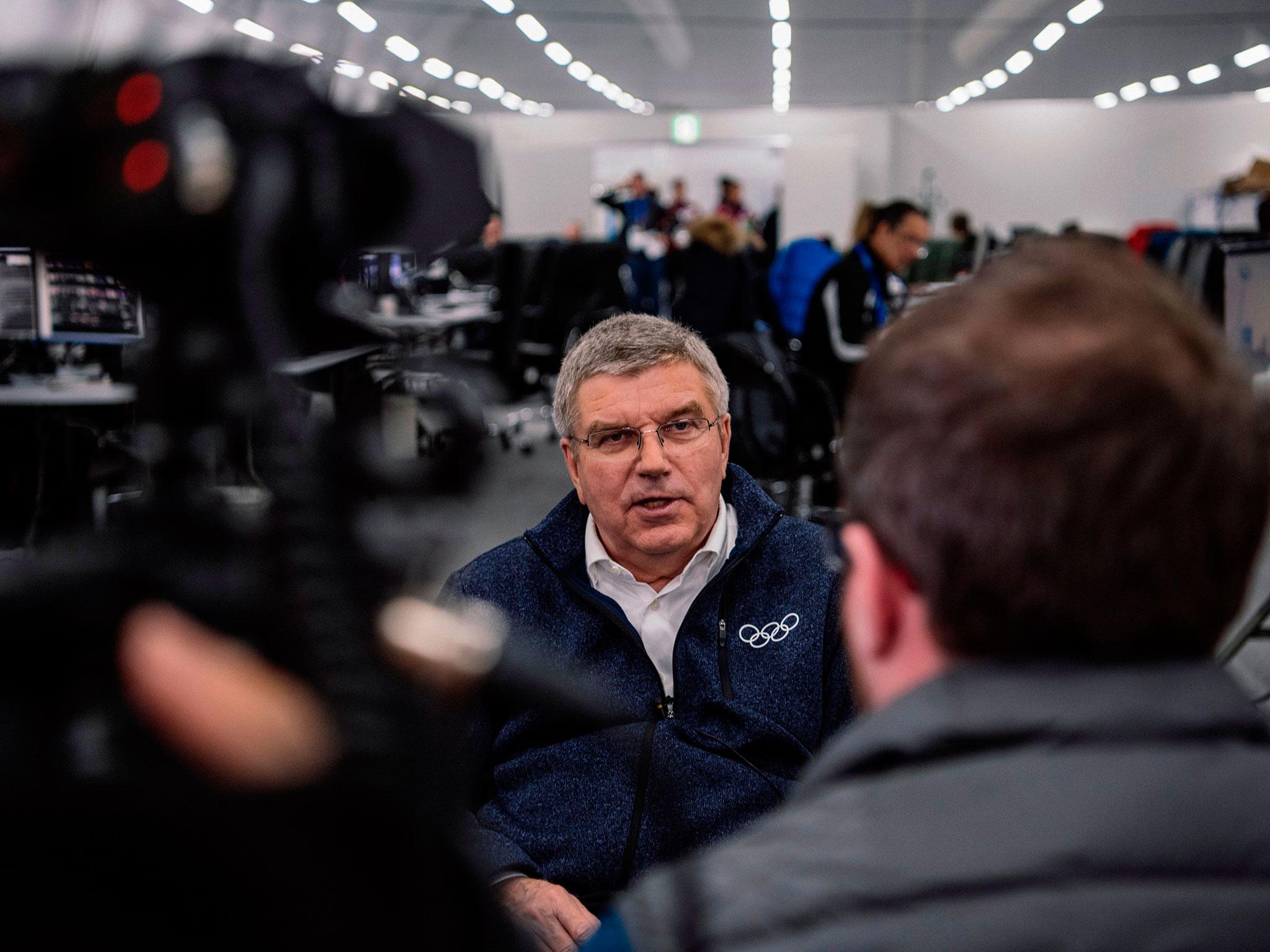IOC president Thomas Bach to visit North Korea after Winter Olympics
Bach said on Monday he would make the visit on the North's invitation as part of an agreement between the IOC and both North and South Korea

International Olympic Committee (IOC) President Thomas Bach plans to visit North Korea after the Pyeongchang Winter Olympics, cementing ties with the reclusive state which used the event to restart political dialogue with South Korea.
Bach told Reuters in an interview on Monday he would make the visit on the North's invitation as part of an agreement between the IOC and both North and South Korea. The parties were still discussing a convenient date, he added.
The Games in South Korea are due to finish on 25 February.
"All the parties concerned have welcomed this invitation to North Korea..." he said. "We are talking about this convenient date in order to continue the dialogue on the sports side. We will see when this is going to happen."
North and South Korean leaders swapped warm handshakes and smiles at Friday's opening ceremony, enabling the IOC to present the Games as enablers of peace and take the media spotlight away from a Russian doping scandal that has plagued it for years.
Russian athletes marched under the Olympic flag, and in neutral colours, at the ceremony, having been banned from competing formally for their country by the IOC. Many critics had called on the IOC to ban Russia outright.
North Korea agreed to participate in Pyeongchang after the South and IOC encouraged the heavily sanctioned state to participate as a gesture of peace.
Athletes from both sides, technically still at war, marched together at the opening ceremony and have fielded a unified women's ice hockey team, the first time an inter-Korean team has competed at any Olympic Games.
South Korean President Moon Jae-in has been using the Games in his efforts to break the ice with the North and pave the way for talks over the North's weapons programme.
"We can set the symbols, we can show that it is worthwhile sitting down together discussing, negotiating, and that then you can come to a good result," Bach said.
"For our side, for the sports side, this dialogue will continue..." he said, adding that the IOC was in constant dialogue with North Korea's national Olympic committee.
The IOC and the two Koreas signed a tripartite agreement on 20 January in Lausanne that set out the details of North Korea's Olympic participation, including the number of athletes, the sports they would take part in as well as their joint march.
The agreement was seen as a breakthrough given the Koreas had not marched together at an Olympics for more than 12 years.
South Korean President Moon Jae-in hosted two of North Korea's most senior officials at the opening ceremony, including North Korean leader Kim Jong Un's sister. Moon warmly shook hands with her and later held talks with her in Seoul.
Kim Jong Un has invited Moon for talks in Pyongyang, South Korean officials said, setting the stage for the first meeting of Korean leaders in more than a decade.
The thaw in relations has centred on the Olympics, with a senior American member of the IOC calling for the joint ice hockey team, which included 12 North Korean players, to be nominated for the Nobel Peace Prize.
Reuters
Join our commenting forum
Join thought-provoking conversations, follow other Independent readers and see their replies
Comments
Bookmark popover
Removed from bookmarks